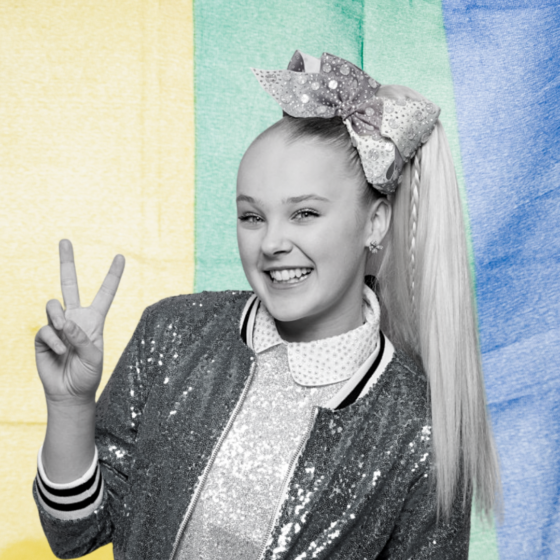Clothes are powerful. They’ve always had a hold over me.
When I started university, fashion marked my freedom. An opportunity to shed my shy, boring status and become someone exciting with each look I curated. I wore a different outfit for every lecture, seminar, night out, trip to the library… I admit it. I am addicted to that feeling of wearing a brand new outfit for the very first time. Weddings, birthdays, nights out, job interviews. Each occasion meant I needed a new ensemble, to make me the best possible version of myself.
“Is that new?” my husband will ask. “Oh no, this thing, I just never wear it.” I lie. Or “it was only a tenner, so it’s basically not like spending money.” I am such a cliché.
I know that the high I feel is dirty, though. Know, but ignore the knowledge that the fast fashion world is toxic. I’ve promised myself that I will stop buying from big companies who don’t care about their staff, the world, their customers… just, you know, I never followed through.
Just one more cardigan, this is the last…just one more fix.
But who am I dressing for now?
There’s nothing like a pandemic to shift things sharply into perspective.
I know clothes are powerful, but I have allowed them too much power. Let them dictate my entire mood. Back when we could leave the house, I have been known to set out for the day wearing an outfit I felt wonderful in; only to get on the train, have a sudden realisation that I look disgusting and can’t possibly go to that meeting wearing this. So I go into a shop to buy a new top, hiding the one I was wearing in my handbag. No one will ever know.
I’m often consumed by thoughts of outfit combinations. I mourn clothes I didn’t buy that I wish I had. But this period of enforced isolation has given me headspace, stopped that whirring thread of my overthinking brain. Turns out dressing for myself means joggers every single day. It’s time to rethink, I can’t hide from myself or my actions anymore. I don’t need new clothes.
Fast fashion is toxic
The term “fast fashion” was coined to describe the super-quick turnover of designs that move from the catwalk to the high street. It grew in popularity in the early noughties, my formative years – it had me hooked instantly, like a drug. I bought tops to wear once and threw them away without considering my actions.
“For many shoppers, Primark has an irresistible offer: trendy clothes at astonishingly low prices. The result is a new and even faster kind of fast fashion, which encourages consumers to buy heaps of items, discard them after a few wears and then come back for another batch of new outfits,” stated an article in The Economist in 2015.
I started to truly reexamine my habit and its hold over me last September, during Oxfam’s ‘Secondhand September’ campaign, which encouraged us to not buy any new clothes for a month. A study commissioned by Oxfam revealed that two tonnes of clothing are bought in the UK every single minute, which produces the same amount of carbon emissions as driving 162,000 miles in a car. Plus, every single week, 11 million garments end up in landfill in the UK. But if I am honest. Although I managed to resist that urge for a month, fast fashion kept calling my name. I couldn’t resist. I was straight back in the changing rooms in Topshop, having another predictable meltdown as I try on a pair of jeans that don’t fit right, another top that looks like one I already own.
But the time has come, I must part ways with fast fashion once and for all, extract myself from its sordid grip… Especially as many of the big companies are coming under fire yet again, this time for how they’ve handled the pandemic. Fashion and sustainability writer, Aja Barber, has been investigating claims from major high street brands that staff wellbeing is their ‘priority’. And she’s exposed brands on her Twitter page that have been operating ‘business as usual’. “We knew fast fashion was bad, but this is really truly bad. This will kill people and it will be right on our doorstep instead of in a factory thousands of miles away,” she wrote on Instagram. She also wrote in-depth about it for Eco-Age.
How can I justify spending hours favouriting items on a site that forces workers to come in without social distancing measures, meaning multiple ambulances are called in a day? (I emailed ASOS for a response to this, they pointed me in the direction of a press release, stating that “strict social distancing” measures were now being implemented, but is it too little too late?)
Every single day, my inbox has been filled with emails inviting me to buy a dress ready for “summer indoors”, quick now because it’s “50% off everything” and the SALE ENDS TONIGHT!, go on, you need that new “picture-perfect loungewear” in your life like RIGHT NOW. But when the company trying to capitalise on a global health emergency by sending out those emails aren’t paying factories for its orders, should we really be giving them our money?
“As the retailer denies to pay, how will I manage money to pay my workers? How will I pay the suppliers of raw materials?” says Mostafiz Uddin, Managing Director of Denim Expert Ltd, a garment factory in Bangladesh. He told me that he received a letter from Arcadia Group (which owns Topshop and Miss Selfride) threatening to cancel completed orders, which have already been shipped, unless suppliers agree to a 30 per cent discount, which Mostafiz said would cause “dire consequences for the factory – which has been closed since 25 March as a safety precaution – and its workers, who are all off work and currently being paid a full salary”. (I contacted Arcadia who are yet to reply).
The impact of my click
The truth is though, should we be buying anything that isn’t truly essential? On BBC news the other morning, I heard a policeman say that we shouldn’t leave the house to buy anything non-essential? Should I really be approaching shopping online with the same kind of caution, even though others seemingly aren’t? Data from Quantum Metric shows online apparel revenue growth is up 43 per cent from this time last year, but is it actively dangerous, or unethical to order online right now?
“Inherently, I don’t think so, but to support brands who are actively doing harm right now, it is,” says Sophie Slater, co-founder of ethical and sustainable fashion brand Birdsong. “It’s such a complicated ecosystem, but I think ethics should inform your choices. Continue to support ethical brands with gift vouchers, but if it’s non-essential and not an ethical company give it a pass. Postal workers seem to be fairly well protected, so if you do really want to order some self-care things or essentials, treat yourself to something packed by one person, not in a massive packed warehouse that’s putting people at risk.” (Check the Royal Mail website for its latest COVID-19 advice.)
While I am sitting at home, browsing online, I am now, once and for all, confronted with the impact of my click. I can’t ignore the people who will be affected by it. If I click buy from an irresponsible company, I am part of the problem. I am saying YES, it’s okay for you to act like that. I am compliant. “Shopping for cheap clothes, having someone paid very little to make something out of crap material, then someone else pick and pack it in a warehouse, the delivery driver come out to you, and then possibly a return or refund – because, let’s face it, this was an impulse, a fast buy that looked nice on the girl in the picture,” says Leila, a charity shop enthusiast who gave up fast fashion and sells vintage records and clothes on Depop. “It just doesn’t really seem like the number one top priority right now.” And I couldn’t agree more.
Support independent businesses
There are brands doing good, though. “I would say it would be very difficult for a business to keep their workers safe at this time by still having them at the workplace,” says Natasha, from handmade dungarees brand Lucy & Yak who are still accepting orders but won’t be fulfilling them until lockdown is over. “I would always advise against buying new things that you don’t need anyway but especially at this time. Some big brands will always stay open if there are paying customers.”
Birdsong – whose mission has always been to make beautiful clothes and to implement change in the fashion industry – have also paused production. “But we’re still taking orders that can be banked for later,” explains co-founder Sophie. “This is essential for us, as it gives our community groups work to go back to after the crisis. Buying gift cards from small independents, tagging your friends in their posts or sharing them on social media is a great way to show the love right now.”
Who should we really be buying from?
But, how do we know which brands to support? “Do some googling, or direct message the brand to see what their ethical track record is like, and what they’re doing to protect their workers at this time,” advises Sophie. “Have they recently been in the news for cancelling orders, leaving their workers without compensation? Do they have protective personal equipment and social distancing measures? Garment production is a non-essential service, so what precautions are these brands taking to keep their workers safe? Have they provided paid leave? Ideally they would be doing that, but brands with a history of human rights abuses are not going to be acting any differently in a pandemic, unless due to public pressure. This is a great opportunity to exercise some empathy and curiosity around all of our supply chains and who’s part of it.”
Workers Rights Consortium have compiled a list of brands who are acting responsibly towards their suppliers and workers, it is constantly being updated here, so you can keep track of brands you usually buy from. Plus Fashion Revolution, a global nonprofit calling for greater transparency in the fashion industry, asked people to send an email to their favourite brands demanding that they pay for orders already placed. I am not going anywhere right now, no special occasions in sight. So perhaps, while I can’t leave the house, I should order from independent brands with big hearts, who cultivate and care about their communities.
It will be a sweet surprise when these amazing Lucy & Yak pink jeans land on my doorstep when lockdown is over. Because, let’s face it, if you order something now and it arrives in a month’s time and you decide you no longer want it, you probably didn’t need it in the first place.
I, for one, am going to rethink my own toxic ways once and for all. Yes, fashion is powerful, but so too are my choices. So, if you spot me in a post office queue, my arms cradling a load of ASOS returns, I give you full permission to slap me round the face (when social distancing is over though, obvs).
If you want to read up on ethical fashion, I recommend The Ethical Fashion Round-Up . This week marks Fashion Revolution Week (20 April 2020), see more at Fashion Revolution.









